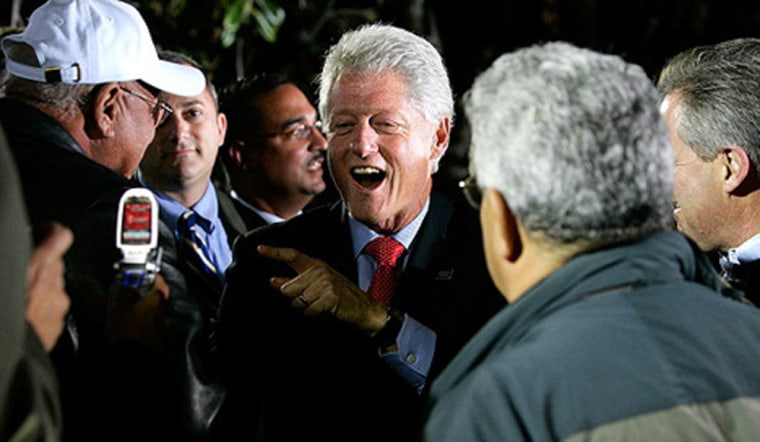"Politicians [have] no leisure, because they are always aiming at something beyond political life itself — power and glory, or happiness.” So wrote Aristotle, and indeed, politicians are a rare breed.
Motivated by both ego and altruism, they're do-gooders with a hunger for power. For these self-assured civic servants, a seat in office is often the holy grail.
But all the authority and exposure of political life comes with a major cost: job insecurity. This year, Democrats' takeover of the House and big gains in the Senate produced scores of lame ducks who will be returning to civilian life in January.
At least five Republican Senators — Rick Santorum (R-Penn.), Lincoln Chafee (R-R.I.), Mike DeWine(R-Ohio), Jim Talent (R-Mo.), and Conrad Burns (R-Mont.) — along with at least 24 Republicans and one Democrat in the House —will soon face a job hunt or retirement, and perhaps some soul-searching.
It's not easy being a loser, but this year's crop can be inspired by those who have gone before them into happy civilian lives. Many ex-pols like to remain center stage even after the show's over, and our celebrity-obsessed popular culture welcomes some with open arms — not to mention with television shows, speaking engagements, and book deals.
It's showtime
Enjoying entree into both pop culture and public policy, Bill Clinton may be the best example of the modern politician-turned-rock-star. Facing humiliation after his impeachment in 1998 and trial the next year, he might have quietly moved to Chappaqua, N.Y., after leaving office in 2001.
But after governing during a period of robust economic expansion, he has remained hugely popular with the public. Clinton was greeted by a crowd of gushing supporters when he opened an office in Harlem, and fans made a bestseller out of his 1,000-page autobiography, My Life.
Like Jimmy Carter before him, Clinton started his own philanthropic organization, the Clinton Foundation, which aims at helping to alleviate global poverty and disease.
Heading up nonprofits, charities, and foundations is common for many ex-politicians, but some seem more focused on performance than policy. Political life seems too confining for Jerry Springer, who served as mayor of Cincinnati in 1977-78. Springer let loose with the 1991 debut of his eponymous talk show, infamous for its guests' hysterical and often lewd antics. And more Americans may recognize Fred Thompson from the program "Law & Order," and films such as Cape Fear than from his nine years in the U.S. Senate.
Power trail
The more intellectual types head for the ivory tower. Former Vice-President Al Gore began lecturing at Columbia University after the presidency slipped through his fingers in 2000, and a number of former politicians are now university presidents, including former Secretary of Health & Human Services Donna Shalala (University of Miami) and former Nebraska Senator Bob Kerrey (New School University, New York).
Whether cloistered within the university walls or beating another path, chronicling their personal history is often an irresistible temptation for former politicians. Both former Congresswoman and Vice-Presidential candidate Geraldine Ferraro and former Nebraska Governor and Senator Bob Kerrey have written autobiographies highlighting the trials and successes of their glory years.
Considering the colorful lives many politicians pursue after leaving office, it seems many of them might have taken their place in the spotlight even without having had to gather the steam, confidence, and funding to face the electoral process. But political types seem driven by both a desire for fame as well as the influence that comes with winning office.
